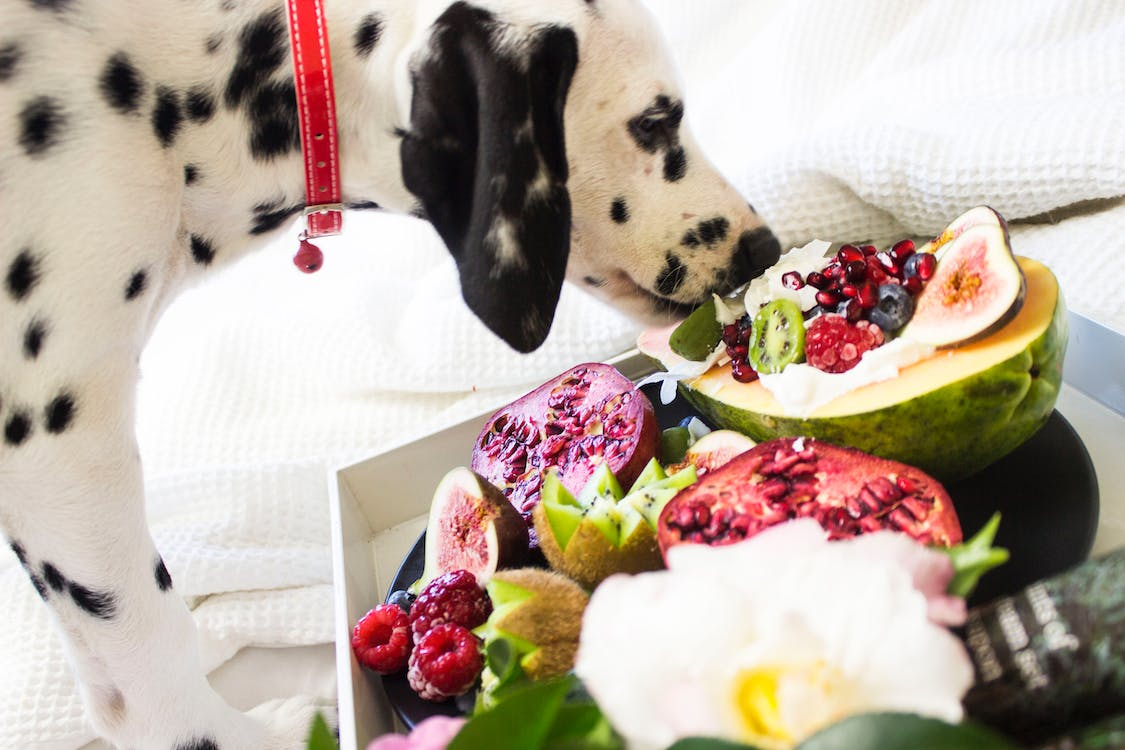Jelly beans are a popular candy, especially around Easter time. Their bright colors and variety of flavors make them an attractive treat. As a dog owner, you may wonder if it’s okay to share a few jelly beans with your pup. This article will cover everything you need to know about whether dogs can eat jelly beans.
Are Jelly Beans Safe for Dogs?
Jelly beans are not recommended for dog consumption. Most jelly beans contain sugar and other ingredients that can cause gastrointestinal upset, diarrhea, and vomiting if eaten by dogs.
Some of the concerning ingredients in jelly beans include:
- Sugar – Most jelly beans are packed with sugar, which can wreak havoc on a dog’s digestive system if consumed in excess. Too much sugar can cause vomiting, diarrhea, gas, and abdominal pain. It can also contribute to obesity and diabetes if regularly fed.
- Artificial colors & flavors – Many mass-produced jelly beans contain artificial dyes and flavors like Red 40, Yellow 5, and Blue 1. These food dyes can cause allergic reactions or toxicity issues if ingested by dogs.
- Xylitol – Some jelly beans are sweetened with xylitol rather than sugar. This sugar alcohol is extremely toxic to dogs and can cause dangerously low blood sugar, liver damage, seizures, and death if ingested. Always check the ingredients list before feeding any human foods.
So in summary, both the high sugar content and potential toxins make jelly beans an unsafe option for pups. Just one or two jelly beans can result in unpleasant symptoms.

Can Any Jelly Beans Be Safely Fed to Dogs?
There are some jelly bean options that may be safe for dogs in very small quantities, including:
- Organic jelly beans – Some health food stores carry jelly beans made with natural colors/flavors and less processed sugar. These may be safer IF fed sparingly.
- Homemade jelly beans – If you’re ambitious, you can find recipes to make dog-friendly jelly beans without xylitol/toxins. But supervision would still be needed.
Keep in mind even “safe” jelly beans should only be fed occasionally and in very tiny amounts. The high sugar content can still cause issues if overfed. We recommend keeping jelly bean treats to an absolute minimum for healthiest digestion.
Signs of Jelly Bean Poisoning in Dogs
If your dog gets into a bag of jelly beans, monitor them closely for these symptoms:
- Excessive thirst and urination
- Vomiting or diarrhea
- Lethargy, weakness, trembling
- Abdominal pain
- Fast or difficult breathing
- Seizures
Contact your vet or pet poison control immediately if you suspect jelly bean poisoning. The longer your dog goes without treatment, the higher the risks to their health. Toxicity can happen quickly so don’t wait to see if symptoms resolve on their own.
What to Do If Your Dog Eats Jelly Beans
If your pup sneaks some jelly beans, here are the next steps to take:
- Don’t induce vomiting unless specifically instructed by your vet, as this can worsen intestinal issues.
- Check labels for xylitol or other toxic ingredients.
- Call your vet or poison control if you suspect poisoning based on symptoms.
- Bring the jelly bean package to the vet appointment for reference.
- The vet may advise activated charcoal to absorb toxins or request blood work to check for toxicity.
- Be prepared for possible hospitalization with IV fluids/monitoring depending on severity.
- Closely monitor symptoms once home and call your vet if you have any concerns.
With prompt veterinary treatment, most dogs fully recover from minor jelly bean incidents. But poisoning cases can quickly become life threatening without proper care. Prevention is key to keep pups safe from candy dangers.

How to Prevent Jelly Bean Poisoning
Here are some tips to keep your furry friend safe from jelly bean mishaps:
- Avoid feeding ANY jelly beans to pets for their own safety.
- Store candy/sweets in high cabinets out of your dog’s reach.
- Always reseal packages and properly dispose of wrappers. Dogs love to investigate crinkly packages!
- Do not leave jelly beans unattended in bowls or Easter baskets/decor where dogs may access and gorge themselves when unsupervised.
- Read all food labels and avoid xylitol at home. Look for xylitol even in “sugar-free” products you don’t expect like peanut butter.
- Train your dog to “leave it” and reward them for not snatching foods from counters or the ground.
- Buy pet-friendly treats for special occasions like birthdays/holidays to reduce your dog’s temptation to eat sweets meant for people. Freeze peanut butter Kongs for long-lasting chewing fun!
Healthy Treat Alternatives for Dogs
Rather than jelly beans, consider these healthy snack options to show your pup some love:
- Frozen/fresh fruits: blueberries, raspberries, banana, apples.
- Unsalted popcorn
- Baby carrots
- Lean diced meats (chicken, turkey)
- Oven-baked sweet potato fries
- Frozen low-fat yogurt in moderation
- Peanut butter without xylitol
- Dental chews for fresh breath
Always introduce new foods gradually. And be sure to adjust your dog’s main meals if offering many treats during the day.
The Bottom Line
Jelly beans and other candies are not safe for pet consumption and should be avoided. However, with attentive pantry/trash management and training, jelly bean incidents can be easily prevented in homes with dogs. Be prepared with emergency numbers and vigilantly monitor any symptoms if an accidental ingestion does occur. With some care, you and your pup can safely enjoy all your favorite Easter traditions and treats.
Frequently Asked Questions
Q: Can diabetic dogs have a few jellybeans?
A: No. Jellybeans will spike a diabetic dog’s blood sugar to an unsafe level very quickly. Even one or two jelly beans could be extremely dangerous for a diabetic dog.
Q: What about just the black jelly beans – are those safe?
A: No. While the black jelly beans do not contain artificial dyes, they still have sugar and other additives that make them unsafe for dogs. Stick to dog treats and avoid all jelly beans.
Q: Can puppies have jelly beans since they are small?
A: No. Jelly beans pose an even greater choking risk for puppies and small dog breeds. And a smaller body size means poisoning symptoms happen faster. Never feed jelly beans to any dogs regardless of age or size.
Q: If my dog ate a whole bag of jelly beans, will they die?
A: It’s impossible to guarantee outcome with toxicity cases, but the prognosis would be very grave if a dog ate an entire bag of jelly beans. Get emergency vet care immediately in that situation to try to save your dog’s life.

